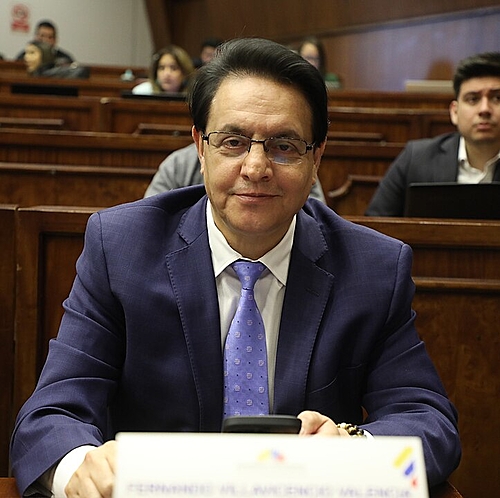
Hours after the assassination of Ecuadorian presidential candidate Fernando Villavicencio, the criminal faction Los Lobos claimed responsibility for the crime. The presidential candidate was killed with three shots as he left an event in the country’s capital, Quito, in the early evening of Wednesday (9).
Villavicencio is one of the few candidates to accuse the government of links to organized crime. With eight thousand members, Los Lobos is the second largest criminal group in Ecuador, behind only Los Choneros, of which it is a dissidence.
Last week, Los Choneros – linked to drug trafficking – had threatened Villavicencio. However, the authorship was assumed by the rival group in video posted on the internet.
The “Los Lobos” claim responsibility for the murder of Fernando Villavicenciopic.twitter.com/N2IsCEyMxV
— The Reason (@larazon_es) August 10, 2023
“Every time corrupt politicians don’t keep their promises when they receive our money, which is millions of dollars, to finance their campaign, they will be fired.”
The group also threatened another presidential candidate, politician and economist Jan Topic
“You too, Jan Topic, keep your word. If you don’t keep your promises, you’ll be next.”
After the incident, the country’s president, Guillermo Lasso, declared a state of exception in the country and stated that the presidential elections are held for the next 20th. At least six people have already been arrested, suspected of involvement in the murder. A suspect was killed by police shortly after Villavicencio’s death.
The electoral dispute does not have a clear scenario, due to the unreliability of research institutes, which present large variations in the electorate’s preference. In some, Villavicencio appears in second place; in others, as the last of the eight candidates.
Who is it?
Villavicencio was 59 years old and a journalist, congressman and former union member. He was known as an advocate for indigenous minorities and social and environmental causes.
He accused former President Rafael Correa of corruption for years, and was sentenced to prison for “defamation”. At the time, he even fled to Peru.
In recent years, the relative stability that marked the country’s political scene has changed with the increased presence of Colombian and Mexican gangs, linked to international cocaine trafficking.
As a legislator, this year Villavicencio blocked an impeachment process against President Lasso, precipitating the current election.
The Ecuadorian academic, researcher at the Tricontinental Institute of Social Research Pilar Troya Fernández told the Brazil in fact believing that the murder was “archive burning, as they killed the person who killed him”.
“Furthermore, the purpose of the incident could be to soil the electoral process, blame the correismo (followers of Rafael Correa) and even create conditions for military intervention.”
Editing: Geisa Marques
Source: www.brasildefato.com.br

